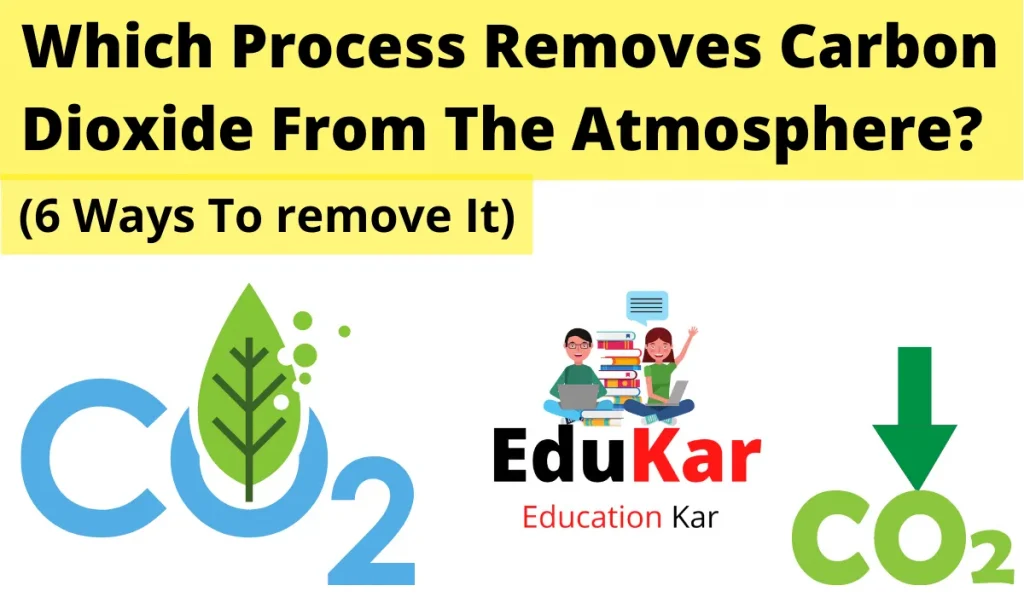Contents
- 1 What is Decomposer?
- 2 What is Ecosystem?
- 3 What is the role of decomposers in the ecosystem.
- 4 Question’s related to Decomposers in the Ecosystem.
- 4.1 1. What is the importance of decomposers in nutrient cycling within an ecosystem?
- 4.2 2. How do decomposers contribute to maintaining a healthy balance in an ecosystem?
- 4.3 3. What are some examples of decomposers and how do they function in breaking down organic matter?
- 4.4 4. How does the removal of decomposers affect the overall functioning of an ecosystem?
- 4.5 5. How do different environmental factors, such as temperature and moisture, influence the activity of decomposers in an ecosystem?
- 4.6 6. How do human activities such as pollution and deforestation impact the decomposer community in an ecosystem?
- 4.7 7. How do decomposers help to prevent the accumulation of waste and dead matter in an ecosystem?
- 4.8 8. What is the relationship between decomposers and primary producers in an ecosystem?
- 4.9 9. How do decomposers help to control disease and pests in an ecosystem?
- 4.10 10. What are some strategies for promoting the growth and activity of decomposers in an ecosystem?
- 5 FAQs
- 5.1 What are decomposers in the ecosystem?
- 5.2 What is the role of decomposers in the ecosystem?
- 5.3 What are some examples of decomposers?
- 5.4 How do decomposers help maintain the balance of an ecosystem?
- 5.5 Can an ecosystem function without decomposers?
- 5.6 How can humans impact the role of decomposers in the ecosystem?

What is Decomposer?
Decomposers are a critical component of the ecosystem, responsible for breaking down dead organic matter into simpler compounds that can be reused by other living organisms. Decomposers include a variety of organisms such as bacteria, fungi, insects, and worms. They play an important role in nutrient cycling and maintaining the balance of the ecosystem.
When a plant or animal dies, it is decomposed by decomposers. Bacteria and fungi are the primary decomposers, breaking down the dead matter into simpler compounds such as water, carbon dioxide, and minerals. These compounds are then released back into the environment and can be reused by other living organisms. Insects and worms also play a role in the decomposition process, helping to break down the dead matter into smaller pieces that can be more easily consumed by bacteria and fungi.
Decomposers are important for nutrient cycling in the ecosystem. When a plant or animal dies, the nutrients that it contains are released back into the environment. These nutrients can then be taken up by other plants and animals, completing the nutrient cycle. Without decomposers, nutrients would be locked up in dead matter and unavailable for reuse.
In addition to breaking down dead matter, some decomposers are also able to break down pollutants in the environment. For example, certain bacteria are able to break down oil spills, helping to mitigate their impact on the environment. This ability to break down pollutants is an important ecosystem service provided by decomposers.
What is Ecosystem?
An ecosystem is a complex network of living organisms, their physical environment, and the non-living components that make up the environment. It consists of all the organisms in a specific area and their physical and chemical environment. This includes plants, animals, microorganisms, and the physical environment, such as air, water, and soil.
Ecosystems can be classified into different types, such as terrestrial, aquatic, or marine, depending on the type of environment they exist in. Each ecosystem has its own unique set of physical, chemical, and biological characteristics that determine the types of organisms that can live there and the interactions that occur between them.
All the components of an ecosystem are interdependent, forming a complex web of relationships. For example, plants use energy from the sun to convert carbon dioxide and water into organic matter through photosynthesis. Herbivores then consume the plants for food, and carnivores consume the herbivores. When organisms die, decomposers break down their remains, returning nutrients back to the ecosystem.
Ecosystems provide a wide range of goods and services that are essential for human well-being, such as food, water, air purification, and climate regulation. However, human activities such as deforestation, pollution, and climate change are putting pressure on ecosystems and threatening their ability to provide these services. Therefore, it is important to manage ecosystems sustainably, to ensure their long-term health and the continued provision of the goods and services that they provide.
What is the role of decomposers in the ecosystem.
Decomposers play a crucial role in the ecosystem by breaking down dead organic matter and recycling nutrients back into the ecosystem. They are responsible for decomposing the remains of plants, animals, and microorganisms, and breaking them down into simpler forms of matter that can be used by other organisms.
Decomposers include a wide range of organisms, such as bacteria, fungi, and some types of insects. These organisms break down organic matter by secreting enzymes that break down complex molecules into simpler compounds, such as carbon dioxide, water, and inorganic nutrients like nitrogen and phosphorus. The nutrients released by decomposers are then available for use by plants and other organisms, forming a cycle of nutrient recycling in the ecosystem.
Without decomposers, dead organic matter would accumulate and nutrients would become locked up, limiting the growth and productivity of other organisms in the ecosystem. By breaking down dead organic matter, decomposers play a critical role in maintaining the health and balance of the ecosystem.
In addition to nutrient recycling, decomposers also help to clean up the environment by breaking down pollutants such as oil and chemicals. They also help to prevent the spread of disease by breaking down dead or diseased organisms.
1. What is the importance of decomposers in nutrient cycling within an ecosystem?
Ans. Decomposers play a critical role in nutrient cycling within an ecosystem. Nutrient cycling is the process by which nutrients are transferred from one organism to another in the ecosystem. This process is essential for the growth and survival of all living organisms within the ecosystem.
When plants and animals die, decomposers break down their remains into simpler forms of matter, such as carbon dioxide, water, and inorganic nutrients like nitrogen and phosphorus. These nutrients are then available for use by other organisms, such as plants, which absorb them through their roots and use them to grow and produce food.
Without decomposers, dead organic matter would accumulate, and the nutrients within it would become locked up, limiting the growth and productivity of other organisms in the ecosystem. The nutrient recycling process performed by decomposers ensures that nutrients are continuously recycled through the ecosystem, providing a continuous supply of nutrients for living organisms.
In addition to nutrient recycling, decomposers also play a crucial role in maintaining the balance of the ecosystem by breaking down organic matter and preventing the buildup of dead organic matter. This helps to prevent the accumulation of toxic substances and the spread of disease within the ecosystem.
2. How do decomposers contribute to maintaining a healthy balance in an ecosystem?
Ans. Decomposers contribute to maintaining a healthy balance in an ecosystem in several ways:
- Recycling nutrients: As decomposers break down dead organic matter, they release nutrients back into the ecosystem, making them available for use by other organisms. This process is essential for maintaining the health and productivity of the ecosystem.
- Preventing the buildup of organic matter: Decomposers help prevent the accumulation of dead organic matter, which can become a breeding ground for disease and attract unwanted pests.
- Removing pollutants: Decomposers play a crucial role in breaking down pollutants, such as chemicals and oil spills, in the environment. This helps to clean up the ecosystem and prevent the spread of contamination.
- Controlling disease: Decomposers break down dead and diseased organisms, preventing the spread of disease within the ecosystem.
- Supporting food chains: Decomposers are a vital food source for many other organisms, such as scavengers and predators. By breaking down organic matter, they provide a continuous supply of food for other organisms in the ecosystem.
3. What are some examples of decomposers and how do they function in breaking down organic matter?
Ans. There are many different types of decomposers, including bacteria, fungi, worms, and insects. Each of these decomposers plays a unique role in breaking down organic matter in the ecosystem.
- Bacteria: Bacteria are the most common decomposers in the ecosystem. They are small, single-celled organisms that break down organic matter by secreting enzymes that break down complex molecules into simpler compounds. Bacteria play a crucial role in breaking down dead plants and animals, as well as other organic matter such as leaves and wood.
- Fungi: Fungi are another common type of decomposer. They break down organic matter by secreting enzymes that break down complex molecules into simpler compounds. Fungi are particularly effective at breaking down tough materials such as wood and plant fibers. Some types of fungi form symbiotic relationships with plants, helping them to absorb nutrients from the soil.
- Worms: Worms, such as earthworms, are also important decomposers. They break down organic matter by eating it and passing it through their digestive system. As the organic matter passes through their digestive system, it is broken down by enzymes and bacteria, making the nutrients available for use by other organisms.
- Insects: Insects, such as beetles and flies, also play a role in breaking down organic matter. They lay their eggs in dead or decaying organic matter, and their larvae feed on the organic matter as they grow. In the process, they break down the organic matter and release nutrients back into the ecosystem.
4. How does the removal of decomposers affect the overall functioning of an ecosystem?
Ans. The removal of decomposers can have significant impacts on the overall functioning of an ecosystem. Here are some ways that the removal of decomposers can affect the ecosystem:
- Accumulation of dead organic matter: If decomposers are removed from the ecosystem, dead organic matter will begin to accumulate. This can lead to the buildup of toxic substances and the spread of disease within the ecosystem.
- Nutrient depletion: Without decomposers, nutrients will become locked up in dead organic matter and will not be available for use by other organisms. This can lead to nutrient depletion, which can limit the growth and productivity of other organisms in the ecosystem.
- Decline in biodiversity: Decomposers play a crucial role in supporting biodiversity within the ecosystem. Without decomposers, many other organisms that rely on the nutrients released by decomposers will struggle to survive.
- Soil degradation: Decomposers are critical for maintaining healthy soils. Without decomposers, soils can become compacted and depleted, making it difficult for plants to grow.
- Spread of disease: Decomposers play a crucial role in breaking down dead and diseased organisms, preventing the spread of disease within the ecosystem. Without decomposers, disease can spread more easily, impacting the health of the ecosystem.
5. How do different environmental factors, such as temperature and moisture, influence the activity of decomposers in an ecosystem?
Ans. Environmental factors such as temperature and moisture play an important role in the activity of decomposers in an ecosystem. Decomposers, including fungi, bacteria, and other microorganisms, break down dead organic matter and recycle nutrients back into the ecosystem.
Temperature: Decomposer activity is influenced by temperature because enzymes, which are necessary for decomposition, work best within specific temperature ranges. The rate of decomposition increases with temperature until it reaches an optimum temperature. Above this temperature, the rate of decomposition may decrease or cease entirely. Decomposers are most active in warm environments, typically between 20-30°C.
Moisture: Moisture is another important environmental factor that affects decomposer activity. Decomposition occurs through chemical reactions, and these reactions require water. Without adequate moisture, decomposition rates will decrease or stop entirely. Excess moisture, on the other hand, can limit oxygen availability, which is also important for the activity of some decomposers. Therefore, moisture must be at an optimal level to support decomposer activity.
Other factors, such as pH, nutrient availability, and oxygen levels, also affect the activity of decomposers in an ecosystem. Understanding these factors and how they influence decomposition is important for managing ecosystems and promoting sustainability.
6. How do human activities such as pollution and deforestation impact the decomposer community in an ecosystem?
Ans. Human activities such as pollution and deforestation can have significant impacts on the decomposer community in an ecosystem.
Pollution: Pollution, such as oil spills, chemical runoff, and other forms of contamination, can be toxic to decomposers and inhibit their activity. Toxic pollutants can kill off decomposer populations or prevent them from breaking down organic matter, leading to an accumulation of dead material and nutrients in the ecosystem. This can cause imbalances in nutrient cycling and impact the health of the entire ecosystem.
Deforestation: Deforestation, or the removal of trees and other vegetation, can also impact the decomposer community. The loss of plant material means that there is less organic matter available for decomposers to break down, which can reduce their population size and limit nutrient cycling. Additionally, deforestation can cause changes in microclimate, including temperature and moisture levels, which can further affect decomposer activity.
In both cases, the impacts of human activities on decomposers can have cascading effects on the entire ecosystem. Without decomposers breaking down organic matter and recycling nutrients, the health of plants and animals in the ecosystem can be compromised. Therefore, it is important to consider the impacts of human activities on decomposers and take steps to minimize negative impacts, such as reducing pollution and promoting sustainable forestry practices.
7. How do decomposers help to prevent the accumulation of waste and dead matter in an ecosystem?
Ans. Decomposers play a crucial role in preventing the accumulation of waste and dead matter in an ecosystem.
When organisms die, decomposers such as bacteria, fungi, and other microorganisms break down the dead organic matter into simpler forms. They release nutrients, such as nitrogen and phosphorus, that are locked up in dead tissue back into the ecosystem. These nutrients are then available for use by other organisms, including plants, which can take them up and use them for growth and development.
Without decomposers, dead organic matter would accumulate, and nutrients would become locked up, making them unavailable for other organisms. This would result in a build-up of waste and a reduction in nutrient availability, which could impact the health of the entire ecosystem.
Additionally, decomposers play an important role in breaking down and recycling other forms of organic waste, such as fallen leaves, animal waste, and other organic debris. By breaking down these materials, decomposers help to maintain healthy soil and nutrient cycling, which is critical for the growth and survival of plants and other organisms in the ecosystem.
8. What is the relationship between decomposers and primary producers in an ecosystem?
Ans. The relationship between decomposers and primary producers in an ecosystem is mutually beneficial and essential for the cycling of nutrients.
Primary producers, such as plants, use energy from the sun to produce organic matter through photosynthesis. They take up nutrients, such as nitrogen, phosphorus, and carbon, from the soil and use them for growth and development. However, these nutrients are limited and can become depleted over time if not replenished.
This is where decomposers come in. They break down dead organic matter and release nutrients back into the ecosystem. These nutrients, such as nitrogen and phosphorus, are then available for uptake by primary producers, which can use them for growth and development. In turn, primary producers provide decomposers with a continuous source of organic matter to break down and recycle.
This relationship between primary producers and decomposers is critical for nutrient cycling and the sustainability of ecosystems. Without decomposers, nutrients would become locked up in dead organic matter, and primary producers would not have access to the resources they need for growth and development. Similarly, without primary producers, there would be no organic matter for decomposers to break down and recycle.
9. How do decomposers help to control disease and pests in an ecosystem?
Ans. Decomposers play an important role in controlling disease and pests in an ecosystem through various mechanisms.
- Pathogen control: Decomposers can help control the spread of disease-causing organisms by breaking down infected plant and animal tissue, which removes the source of the disease. By reducing the number of pathogens in an ecosystem, decomposers can help prevent the spread of diseases among plants, animals, and humans.
- Pest control: Decomposers can also help control pest populations in an ecosystem. For example, some decomposer fungi produce toxins that are toxic to insects and other pests, which can help control their populations. Additionally, decomposers can break down and recycle organic matter that can serve as breeding grounds for pests, such as mosquitoes.
- Nutrient availability: Decomposers can indirectly impact the control of pests by regulating nutrient availability. If nutrient levels are too high, pest populations may increase, as they have more resources available to them. However, if nutrient levels are too low, plant and animal populations may be weakened, making them more vulnerable to pest infestations. By regulating nutrient availability through the breakdown of organic matter, decomposers can help maintain a balance that supports healthy plant and animal populations while minimizing pest infestations.
10. What are some strategies for promoting the growth and activity of decomposers in an ecosystem?
Ans. There are several strategies for promoting the growth and activity of decomposers in an ecosystem. These include:
- Add organic matter: Adding organic matter to the soil can increase the food source for decomposers, which can promote their growth and activity. This can be done by incorporating organic matter such as compost, manure, or leaf litter into the soil.
- Reduce chemical use: Reducing the use of chemicals such as pesticides and fertilizers can help promote the growth of decomposers. Chemicals can harm or kill decomposer populations, so reducing their use can help protect these important organisms.
- Maintain moisture levels: Moisture is essential for the growth and activity of many decomposers. Maintaining appropriate moisture levels in the soil or other environments where decomposers are active can help promote their growth and activity.
- Use cover crops: Cover crops such as legumes can help promote the growth of decomposers by adding nitrogen to the soil. Nitrogen is a critical nutrient for many decomposers, so increasing its availability can help promote their growth.
- Plant diversity: Planting a variety of plant species can help promote the growth and activity of different types of decomposers. Different decomposers have different preferences for the type of organic matter they consume, so increasing plant diversity can provide a range of organic matter sources for decomposers to feed on.
- Reduce soil compaction: Soil compaction can reduce the availability of oxygen in the soil, which can limit the growth and activity of decomposers. Reducing soil compaction through practices such as reduced tillage or adding organic matter can help promote the growth and activity of decomposers.
FAQs
What are decomposers in the ecosystem?
Decomposers are organisms that break down dead or decaying organic matter, such as dead plants and animals, and convert them into simple organic compounds that can be used by other organisms.
What is the role of decomposers in the ecosystem?
The role of decomposers in the ecosystem is to recycle nutrients back into the soil, making them available to other organisms. They break down dead organic matter and release nutrients such as nitrogen, phosphorus, and carbon back into the soil, where they can be absorbed by plants and other organisms.
What are some examples of decomposers?
Some examples of decomposers include bacteria, fungi, earthworms, and insects such as beetles and flies.
How do decomposers help maintain the balance of an ecosystem?
Decomposers help maintain the balance of an ecosystem by breaking down dead organic matter and recycling nutrients back into the soil. This process helps ensure that nutrients are available to other organisms in the ecosystem, including plants and animals.
Can an ecosystem function without decomposers?
No, an ecosystem cannot function without decomposers. If there were no decomposers to break down dead organic matter, nutrients would become locked up in dead plant and animal material and unavailable to other organisms. This could lead to a buildup of organic matter and a decrease in the overall health of the ecosystem.
How can humans impact the role of decomposers in the ecosystem?
Humans can impact the role of decomposers in the ecosystem by introducing chemicals and pollutants into the environment that can harm or kill decomposers. Humans can also disrupt natural nutrient cycling processes through practices such as clear-cutting forests or using synthetic fertilizers, which can lead to imbalances in the ecosystem.


![Biology Class 10 Very important [Questions &Answers] Biology Important Questions with Answers class 10](https://edukar.in/wp-content/uploads/2022/09/Biology-Important-Questions-with-Answers-class-10-1024x597.webp)
![Carbon And Its Compounds Important Questions [Class 10] Carbon And Its Compounds Important Questions Class 10](https://edukar.in/wp-content/uploads/2022/09/Carbon-And-Its-Compounds-Important-Questions-Class-10-1024x597.webp)
![Zoology Important Questions [Class 11th-English medium] Zoology Important Questions class 10 english medium](https://edukar.in/wp-content/uploads/2022/09/Zoology-Important-Questions-class-10-english-medium-1024x597.webp)



![Corporate Accounting [Important Questions & Answers with MCQ] Corporate Accounting Important Questions & Answers](https://edukar.in/wp-content/uploads/2022/09/Corporate-Accounting-Important-Questions-Answers-1024x597.webp)


![Web application and Security Class 10 [Questions Answers & MCQs] Web application Class 10 Questions & Answers](https://edukar.in/wp-content/uploads/2022/09/Web-application-Class-10-Questions-Answers-1024x597.webp)

![Digital Documentation Class 9 [Questions Answers & MCQ] Digital Documentation Class 9](https://edukar.in/wp-content/uploads/2022/08/Digital-Documentation-Class-9-1024x597.webp)


